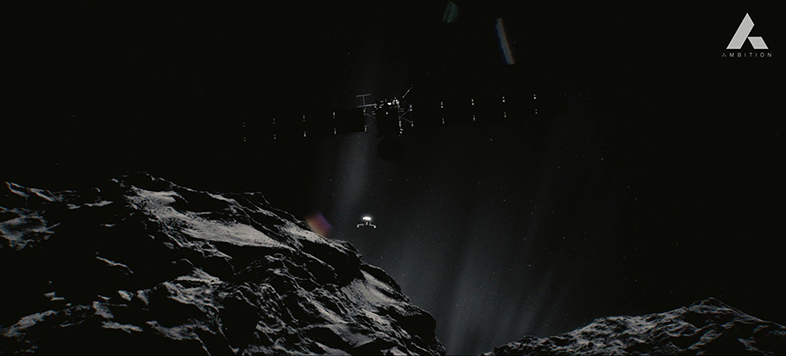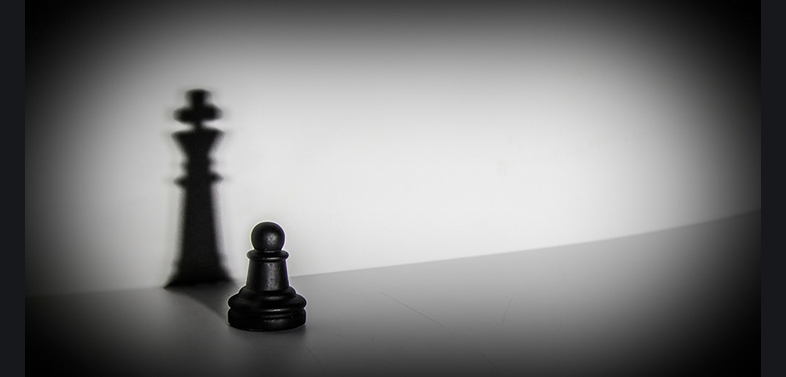∴

…
Key Points:
- Ancient, modern and post-modern insights reveal 10 core, guiding dynamics behind ambition’s inherent complexity
- Ambition is never satisfied, is often oversupplied or misallocated, penalizes for wanting too much, and reminds us how perfection remains unknowable
. . . … . . .
Chase and Extend, for Life
To reach the height of our ambition is like trying to reach the rainbow; as we advance, it recedes. We apply, and reapply, and bear ascensionist limits that infuse ardor into ambition. Given the world’s unlimited supply of failure and irrationality, wax wings shall melt as the Icarus Syndrome takes hold. Alfred Lord Tennyson put his own bitter twist on this particular form of destiny:
“Ambition is like the sea wave, which the more you drink the more you thirst—yea—drink too much, as men have done on rafts of wreckage—it drives you mad.”
Limits and boundaries may be recognized with respect, but are often seen as enemies. You’ve come to believe in yourself when no one else does, experimenting with ambition’s heat and strength to see where it might break you or chuck your future into the shadows. Why do you think the goal posts need to be moved in order to maintain the hunger that replaces each success? It’s no accident—you were designed this way; disorder and self-summoned hazards are pegged to the cornerstone ambition for sheer survival.
In mythology, ambition was almost the undoing of the Norse god Odin, who relentlessly pursued wisdom and knowledge, often to his own detriment. Along that razor’s edge, the substance and empowerment of human ambition shares the same uneasy league with animals, plants, tectonic plates and stardust—all of which seem to hold unique or abstract (unhuman) ambitions that temper their endurance. Beyond the boundary lines of a dogged polemic some go spinning through a parable realm of Don Quixote, incapable of tamping down the sprit’s urge to grow, to matter, and to find meaning and truth in a world that is often bereft of easy explanations.
Whether solo or in collaboration, we push the envelope to examine and assimilate that which is strange and new, as if the denial of discovery undermines our existence. Drive and desire need room to breathe. Beware the apathy that delays such a goal. Evade the regret of misallocated ambition, illustrated clearest in the trappings of the dilettante—if you go after too many things, or incompatible things, at once, you could end up with nothing meaningful. Instead of shaping what comes next, it will shape you, and you’ll have to adopt an unwelcome essence as ambition takes a round trip through the neuronal hamster wheel, a.k.a. the hedonic treadmill. Humans are legendary for rebalancing in the face of disappointment, which is why we run the planet. When destabilized by chance and foolishness, the arc of “aspirations” (as a separate and short-term concept) can end up falling shy of longer-term ambitions, but it still lands that segment of society far ahead of their more-unassuming, risk-averse peers. Daring to do nothing stokes nothing but the ultimate discontent. With a flick of misfortune, we’ve seen how an outside force imposes its limits as people descend toward futility or apathy. Inside, we’re tied to the Peter Principle—the theory that people in a hierarchy typically rise to their level of incompetence. In terms of gender, studies show there’s splintering between classically male and female ambitions, while both sides share common ground in the way they cautiously exert their productive forces—pull the string, and it will follow wherever you wish. Push it, and it will go nowhere at all. (Concepts generally accepted to be virtuous and true, in all formats.)
…

…
There is a disorienting but powerful moment when ambition pays off, resets our baseline orthodoxy and suddenly makes us less known to ourselves. In the building up, we also see the deconstruction, as if watching an eclipse slowly turn the light out, pass through the dark side, and reignite the torch of new light on the other side of a rocky sphere—isn’t this the mind, with its ability to excavate information from background noise and feel the passage from ignorance to wisdom? It’s cliché to say we are like the moon and stars, but the parallel is justified.
The venerable Marcus Aurelius, bursting with stoic wisdom and striving for honor and recognition, understood that “a man’s worth is no greater than the worth of his ambitions.” He lived for achievement and distinction, and showed steely determination in the face of adversity and failure. It reminds us that ambition is ultimately about distinguishing ourselves from other people, or else we wouldn’t bother; if you were the last person on Earth, ambition would make little sense except to stay alive. A paradox may arise: Ambition can make us strangers to our former selves and malign previously solid bonds with others, in part because ambition can make others envious as they are left behind by the ambitious.
In the science of personality, ambition is often confused with aspiration. Unlike mere aspiration, which has a particular goal or object, ambition is a trait or disposition and, as such, is persistent and pervasive. Spinoza said ambition exists as an endeavor to make others love what we love, and to hate what we hate, and we selfishly do believe that every person by nature harbors cravings to see others live according to our way of thinking. There’s a subtle crease where ambition is also not “hope” but a willingness to strive for achievement. It runs far and tips into the socially-acceptable face of selfishness and greed (considered reductive or destructive qualities), but is more adaptive, far-reaching and flexible than those traits because it can contribute to the flourishing of others. In Eastern tradition ambition is seen as evil, tied to earthly pursuits, and a barrier to the fruits of virtue, wisdom and tranquility.
Aristotle had a more nuanced take on ambition. In the Nicomachean Ethics, he defines virtue as a disposition to aim at the intermediate, or mean, between excess and deficiency, which, unlike the excess or the deficiency, is a form of success and worthy of praise. For example, he who runs headlong into every peril is rash, and he who flees from every situation is a coward, but courage is indicated by the mean. While it is possible to fail in many ways, says Aristotle, it is possible to succeed in one way only, which is why failing is easy and success difficult. By the same token, men may be bad in many ways, but good in one way only. Aristotle proceeds to name and dissect the principal virtues together with their associated vices. In the sphere of “minor honor and dishonor,” he names “proper ambition” as the virtuous mean, “unconstrained ambition” as the vicious excess, and “lack of ambition” as the vicious deficiency.
…

…
In politics, Aristotle contends that men’s avarice and ambition are among the most frequent causes of deliberate acts of injustice. Several centuries later, Francis Bacon refined this proposition: as long as ambitious men go unchecked, they are busy rather than dangerous; but if they are held back, they “become secretly discontent, and look upon men and matters with an evil eye, and are best pleased when things go backward.” Bacon advised princes and politicians to be extremely cautious in employing ambitious people.
In the Rhetoric, Aristotle asserts that the effect of good birth, that is, ancestral distinction, is to make people more ambitious. He does however caution that to be wellborn is not to be noble and that most of the wellborn are wretches nonetheless. Both nature and nurture play a role in the development of ambition:
“In the generations of men as in the fruits of the earth, there is a varying yield; now and then, where the stock is good, exceptional men are produced for a while, and then decadence sets in.”
In brief, ambition is a complex construct born out of a host of factors including but not limited to parental role models, intelligence, past achievement, fear of failure or rejection, envy, anger, revenge, feelings of inferiority or superiority, competitiveness, and the instinctual drives for life and sex.
…

…
From a purely psychological perspective, ambition can be thought of as an ego defense, which, like all ego defenses, serves to protect and uphold a certain notion of the self. Rather than respond with ambition, a person who lacks the strength and courage to take responsibility for his actions is likely to answer back with less mature ego defenses, for instance, by rationalizing that “life is unfair.” If his ego is much bigger than his courage, he might become plaintive, dismissive or even destructive, the latter also being a means of attracting attention and sabotaging himself so as to furnish a concrete excuse for his failure.
In life, few things are either good or bad in the strictest sense. Rather, their good and bad depend on what we can or cannot make of them. People with a high degree of healthy ambition are those with the insight and strength (strength that is often born of insight) to control the blind forces of ambition, that is, to shape their ambition so that it matches their interests and ideals, and to harness it so that it fires them without also burning them or those around them.
The different conflicts of man-versus-self displayed in Shakespeare’s Macbeth portray excessive ambition as a negative quality and as the possible result of downfall. The first struggle over ambition between man and self in Macbeth is seen when Macbeth says, “I have no spur to prick the sides of my intent, but only vaulting ambition, which o’erleaps itself, and falls on th’other.” From this, Macbeth shows that he allows his ambition to control his actions rather than simply motivate him. He understands that he is about to do something wrong, but he also knows there is nothing he can do to prevent it. This quote describes how he understands that his ambition becomes greater than his own intent.
A person shrinks or expands into the degree and nature of his or her ambitions. Ambition needs to be cultivated and refined, and yet has no teachers.
…

…
The Flame
I can picture a flame, and everybody feels it too. My work is valid—I can’t prove it, but I know. Where is ambition taking it? We’re constantly asking ourselves, if only silently. Some final questions to mull:
- What am I trying to achieve, and why is it so important to me?
- What lengths am I willing to go to in order to reach my goal?
- Do I run over others in my attempts to get ahead? Do I harm or neglect myself or others in trying to reach my goal?
- Is this goal an honest reflection of my inner values?
- Does the intensity of my pursuit obscure everything else?
- What will happen if I get it? What will happen if I don’t?
- Do I allow myself to pause and savor the realization of a goal before reaching for the next one?
- Can I appreciate what I do have and what I’ve achieved?
- When I realize this goal, what’s next?
There is always a “next” thing, until we reach our very last thing. The future impulses are vast; ever forward…
